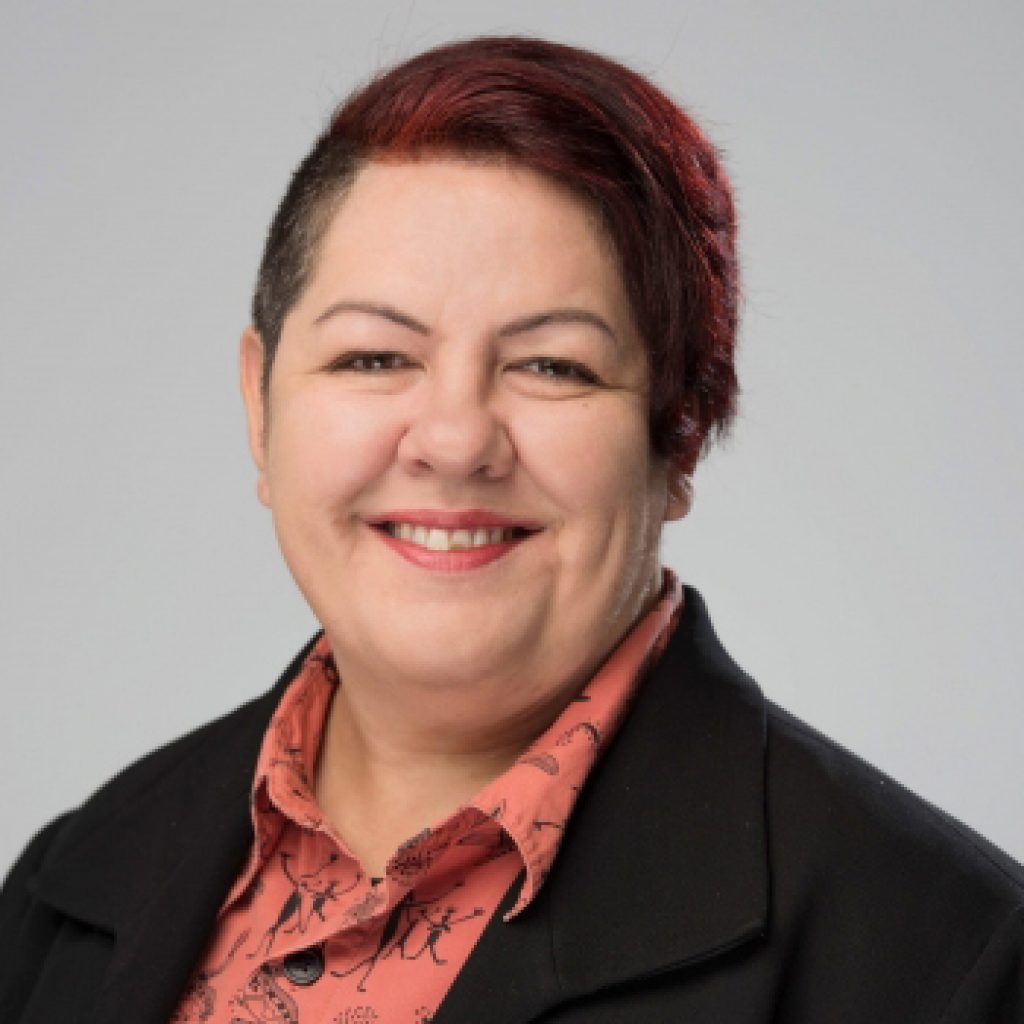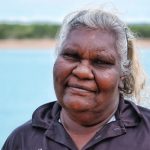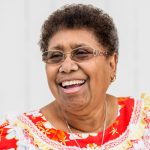
Don’t doubt yourself. We are capable of so much more than we think we are. We need to believe in ourselves. Self-belief is the most important thing and if you don’t believe in yourself, how can you expect others to believe in you?
I live and work on Darumbal country in Rockhampton. I’m also a proud Bundjalung and Gumbaynggirr woman from Northern New South Wales – that’s where my mob are from. I’ve been on Darumbal country for the last 30 years on and off.
I’ve worked in community services for a while now, but it actually started around 1991. Aboriginal Hostels Queensland used to have a rent subsidy for University and TAFE students where they could get a refund, so I was involved in setting that up at the University with a whole heap of other students in the Indigenous Support Unit. I did this for couple of years then went and sat on the Board for Jack’s House, which is a local youth shelter here in Rockhampton.
Currently I work for the Australian Indigenous Mentoring Experience (AIME) at CQUniversity. We work with Indigenous students in High School and have them mentored by University students and community members. I frame this role in terms of empowering people and ensuring that they have the best opportunities in life. I’ve also been a Member of the Board of the Durrumbul Committee for about six years now.

Did any Aboriginal or Torres Strait Islander women inspire you growing up?
Like most, my Mother was a very significant influence. She’s an incredibly strong woman, as are all the women in my family life.
My Grandmother was an incredibly strong woman, as well as my Aunty. Strong in the sense that life is not necessarily neat and tidy, but they worked hard to ensure that we could succeed as kids.
So I joined my brothers and sisters in growing up very poor. Despite this adversity, my Mum’s words at the time really resonate with me:
I can’t give you much, but the one thing I can give you is your education.
So homework, school work, and doing the best you possibly could at school was really significant and important. And that certainly has played a really strong part in my life and approaching everything with a level of dignity. When you’re facing racism, discrimination and adversity in whatever form, it’s important to do this with a sense of dignity and pride.
Certainly, my Mother is a really strong influence in who I am. She also passed on some values that are important to me. Values like you should always look after your mob, look after people, and always do right by people. I think that sort of attitude has led into the fact of volunteering and working within the welfare community sector for so many years.
I personally think education is a key for Indigenous people. It’s not the be all and end all, and it’s a key to open doors. So, that was the really important part for my Mum and for my success.
My upbringing has certainly led me back to working where I am but it’s that holistic puzzle of it’s impossible to move ahead in life and have academic influence in any sphere when you don’t have somewhere to live. Or you’re not sure whether your gear’s still going to be there when you get home because the house isn’t secure because. That there’s no back door because the landlord hasn’t put one on so you don’t feel safe.
So I think that knowing the importance of education meant that certain doors opened for me.
But for our people, what’s more important is to fill that need to have an actual bed at night and somewhere to live and not stress about that, to be able to achieve the other things in their lives.
So, that’s what I think what led me to work within the welfare sector, addressing those other barriers to education. Nobody is going to be able to create opportunities for themselves if they’re on the street. It’s possible but it’s just too hard.
It’s not a chicken and egg argument that they need a roof, it’s a basic human right.
I’ve got two healthy teenagers – a 16-year-old daughter and a 14-year-old son. The good thing about them is they understand the work that I do and why I do it. They understand the importance of it and they certainly get involved in volunteering in different things which is really good.
I was proud of my son during Wangarunya, which is the Warba Wangarunya Rugby League Carnival run by the Darumbal Community Youth Service. He was doing the tea and coffee for the Elders in the VIP area, so spent two days fetching tea, coffee and bikkies and he really loved it – he put a lot of pride and effort into his work. And that’s the second year he’s done that. Both of them have been heavily involved in the scouting movement so there’s been lots of times where they volunteer on different events around the community. So, for me, it’s very important that they contribute back to the community.
What does NAIDOC Week mean to you?
It’s ‘the’ week for my family. It’s more important than Christmas or Easter because it’s an opportunity for us all to come together. There are people in our community that you only ever see in NAIDOC week.
Everyone comes out during NAIDOC Week in Rockhampton – it’s huge and we often joke about having NAIDOC month. There’s so many events that are on, but it’s the opportunity for all the community to connect, to celebrate, and to recognise the positives.
It’s not about the negative stories, it’s about achievement and how we perceive ourselves Not how necessarily mainstream media or bureaucrats come out and talk about patterns of disease and talk about how disadvantaged the Indigenous population is. The thing I like about NAIDOC is that it strips that paradigm and lets us celebrate how deadly we know we are.
So, it’s a significant event, and it’s a culturally and emotionally safe space where we can express ourselves in a safe environment. You feel emotionally and culturally safe, everyone is absolutely on the same page, and it’s a really special week for us.
What does this NAIDOC Week theme mean to you?
Coming from a matriarchal family, it was a very significant theme for me. We have our strong warrior men; but there’s always that strong Aunty, that older sister, that big cousin. There’s a lot of incredible strong women and, probably being on my little rant, we don’t sit the mainstream version of feminism.
Being a black woman means I definitely can, not that I can’t. And I think it speaks to most women that you can’t hold a good woman down.
We are problem solvers and we are there to make things happen, however we need to do it. So, I think it’s a really apt theme for NAIDOC this year.
What’s your message to Aboriginal and Torres Strait Islander women this NAIDOC Week?
Don’t doubt yourself. We are capable of so much more than we think we are. We need to believe in ourselves. Self-belief is the most important thing and if you don’t believe in yourself, how can you expect others to believe in you?
Trust yourself and don’t be afraid to fail. Step out there. Try it. If you don’t succeed, that’s ok. You just need to try again or try it differently.


